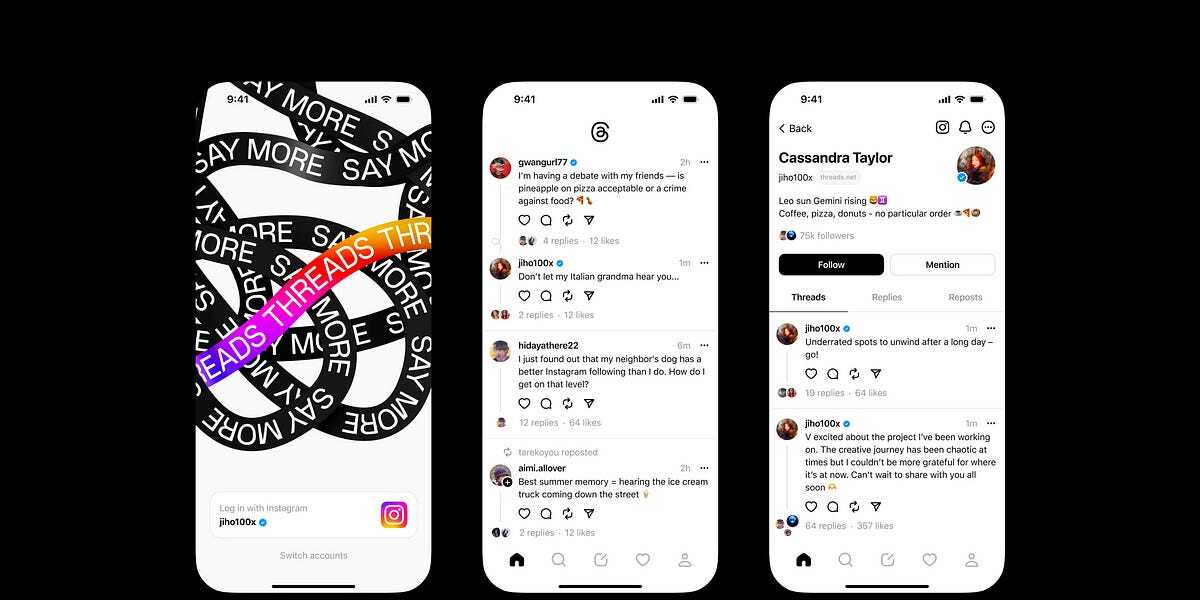When Meta announced Threads, their new Twitter competitor, they claimed in the very first paragraph that it would interoperate with Mastodon and other social networks based on the open-source ActivityPub protocol: The official Mastodon site responded with their own blog post to address frequently asked questions



This is an interesting position to take, but one I’m not fully convinced I agree with even though I look at what Meta is doing with Threads and freely acknowledge I have no idea what their future monetization strategy is by linking to ActivityPub.
If people can interact with Threads users and posts in the Fediverse and not see any ads that Threads will undoubtedly display, what incentive is there to be on Threads proper? I don’t believe people are that enamored with recommendation algorithms, but maybe I’m way off base there. So, the only other potential strategy that makes sense to me is a form of partially limited access to content on Threads. Meta would probably want people to see what’s going on over in Threads even if they can’t fully participate somehow. There could be some Apple-like blue bubble/green bubble bullshit (probably not literally, but something akin to that strategy). There’s also undoubtedly going to be some form of inherent social pressure where people who’d left Facebook/Twitter to get away from Meta/Musk/corporate interests are forced to consider why they’re still cutting themselves off from friends/family who they could be interacting with on Threads through the Fediverse. Whether this pressure is positive or negative will be a matter of perspective, but it will influence some people to re-engage, which is a value that is hard to quantify. Regardless, Threads is going to divide the Fediverse into 2 distinct camps, those willing to federate and those unwilling. Servers willing to federate are going to be more bound by Meta’s rules and are going to be inundated by Thread’s content to the point they lose their individual identity and, arguably, their relevance. And those that don’t trust Meta at all, even on neutral ground, are potentially going to tend to draw the more paranoid, antisocial, and fringe crowds and have strange subcultures.